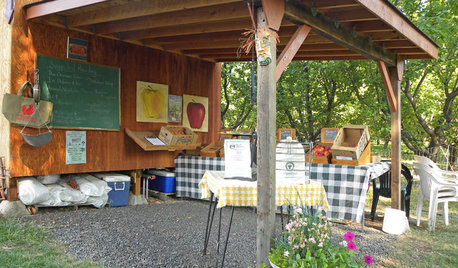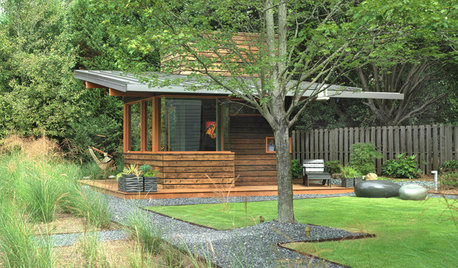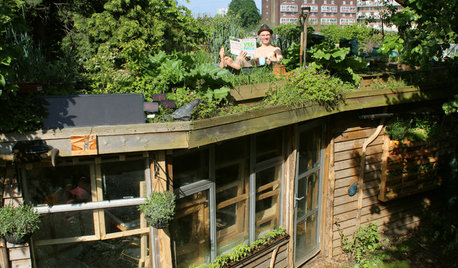.... or you die!"
I wrote this, probably in a fit of boredom, just before Christmas in '07.
"I'll preface my thoughts by saying that the subject line is is a 'by chance', though fortuitous quote from a dear friend I had dinner with last night, and my tone is friendly & and conversational/nonconfrontational. It's not an admonishment or a prick at anyone. Rather, it's a musing of mine, spawned after my friend's singular, passing comment that just stuck in my mind.
Our bonsai group had its Christmas party last night, and one of the couples at the table were old nursery owners. By old, I mean that Dick and his bride are nearly 90 years old and have been in the nursery/landscaping business for nearly 70 years. He and his sons own (easily) the largest operation inside a 50 mile radius of my home.
As we laughed and visited, we traded stories, and Dick had a lot of them. At some point he stopped and said, "You know, Al - we don't do anything like we did 30 years ago. Everything is different." Of course, we all know that everything can't possibly be different, but we should all be able to see that what he meant is that he's been around long enough to have seen lots of substantial change. He mentioned that horticultural practices and beliefs have changed radically since he began his commercial endeavor. He talked of price increases and new machinery, of course. He mentioned that the most far-reaching effects on how business was conducted and in the timing of operations came about when the advent of the use of plastic overtook the industry; but most often, he returned to the idea that growing practices have evolved continually, ever since he first began getting his hands dirty as a youth.
Also in the group was another very old (95 years) friend. Fred, an intimate friend of mine and a reliable sounding board, has been a plantsman all his life. He started working in his fathers greenhouse when still a school boy, and his plants are still something he treasures almost as much as life itself. You should not doubt these words. I have seen the bodily sacrifices Fred has made to be with his plants, and the story would make almost any plant lover with a heart, cry. Fred also talked about the changes he's seen.
Dick is still active in his business, and more the business man, Fred is a plant purist and simply loves his plants, but Fred quickly agreed when Dick said, "You gotta change, man, or you die."
Dick was talking about his business, about assimilating the knowledge of new techniques, technologies, and procedures, about using what improves chances of survival - about adapting to stay competitive, and about reducing the amount of effort it takes for rearage of plant material.
Progress could easily have passed Dick by - Fred, too. Yet they survived and flourished because they were open to the prospects of learning. We can do that as well, as simple hobbyists. We can learn and explore - experiment - and entertain new ideas and suggestions, and we can have FUN doing it.
These men, lifelong friends, each had open minds that facilitated both their progress and success. These traits have endeared them to others, and have provided the foundation for a never ending wonder at the volume of what there is to be learned; and even though their experience is so far superior to any of ours, they are still hungry for knowledge and still learning.
Who are they learning from? Are they learning from people with more experience? No, of course not. That would be very close to impossible, given their lifetimes of husbandry. They are learning from people who are closer to what is developing in horticulture today - people who think outside the parameters of the limits we are so often ready to accept, or even place on ourselves by an unwillingness to embrace anything new or different. They are learning from people who are armed with knowledge and technology that often could never be revealed to the rigid, after even another entire lifetime of experience.
So what about experience? What is it worth? Certainly, it's worth something, but how do we quantify it? If you think about the paragraph above, you'll see that even men with years and years of experience seek those with knowledge to guide them. The nurseryman is no different from the greenhouse operator is no different from the doctor is no different from the fighter pilot in their need for knowledge beyond what experience offers.
One thing I realized about 15 years ago, is that when it comes to growing things knowledge trumps experience. I tried my hand at growing bonsai and failed miserably. I didn't have either the knowledge or the experience to keep plants alive in the diminutive containers they are grown in. After a few months and repeated failure, I quit trying and hit the books. I studied hard for 4 or 5 years, and when I tried again, I was amazed at the difference in my abilities and success. I had no more experience than when I quit, but I had knowledge.
You cannot grow in your horticultural endeavors unless you are learning. If you are not learning, your experience consists of doing the same things over and over again - right or wrong. Stagnation - learning nothing new, absolutely binds you, like a prisoner, to your current level of knowledge and abilities, makes progress impossible.
Do we learn from experience? Yes we do, but nowhere near as quickly as we do if we seek out knowledge that can be tempered in the fires of experience. Consider too, that the more extensive our knowledge, the greater our ability to make accurate observations and decisions. This is as true in life as it is in our growing endeavors.
Embrace knowledge & seek it wherever you can find it - here on these forums if you like, books, classes, seminars, symposia, etc. Let go of the thought that nothing can be better than 'the way I'm doing it now'. If you don't, if you aren't willing to change and adopt new thinking as you go through life, it's 100% assured that progress and technology will leave you standing in its slipstream.
These thoughts are not aimed at anyone and they apply to me as much as anyone who took the time to read this far. There is room for discussion, certainly, but if there is disagreement with anything, please be respectful of the effort it took to write, and address the comments to the subject matter while remaining on track.
Respectfully offered,"
(This was written during a period of controversy on the houseplant forum, thus, the last paragraph. It probably isn't necessary, but since it was part of the original text, I included it anyway.)
Al
















sprtsguy76
locteach
Related Professionals
Glassmanor Landscape Architects & Landscape Designers · Canton Landscape Contractors · Pelham Landscape Contractors · Deerfield Beach Landscape Contractors · South Portland Landscape Contractors · West Haverstraw Landscape Contractors · Maple Heights Landscape Contractors · Benicia Solar Energy Systems · Rehoboth Solar Energy Systems · Titusville Solar Energy Systems · Manville Window Contractors · Kendall Fence Contractors · Lincolnwood Fence Contractors · Redondo Beach Fence Contractors · Santa Maria Fence Contractorstapla (mid-Michigan, USDA z5b-6a)Original Author
bcskye
locteach
ronalawn82
tapla (mid-Michigan, USDA z5b-6a)Original Author
earthworm
greenman28 NorCal 7b/8a
tapla (mid-Michigan, USDA z5b-6a)Original Author
greenman28 NorCal 7b/8a
sprtsguy76
tapla (mid-Michigan, USDA z5b-6a)Original Author
calistoga_al ca 15 usda 9
tapla (mid-Michigan, USDA z5b-6a)Original Author
shanielynn
sprtsguy76
calistoga_al ca 15 usda 9
tapla (mid-Michigan, USDA z5b-6a)Original Author
calistoga_al ca 15 usda 9